Identify Hair & Scalp Problems
Is your hair or scalp problem worsening? Know the signs and treat the problem at its roots before its condition worsens.
A survey was conducted by Nathan Rich Research. It showed that men are more concerned with dandruff and scalp greasiness, while women tend to be more preoccupied with split ends and frizzy hair. However, both genders are worried about prominent hair partings and hair thinning. The survey also revealed that trichology and European herbal hair remedies are considered the most credible hair treatments. Majority of the respondents indicated TK TrichoKare as the “most trusted trichological centre”.Hair Loss
Hair loss occurs when the hair growth cycle is disrupted or when hair follicles are destroyed and replaced with scar tissue. It is usually caused by:
-
Family History (Hereditary)
Inheritance of baldness gene
-
Hormonal Changes
Presence of DHT in androgens, Childbirth, Menopause etc.
-
Stress
Can be either physical or mental stress
-
Diet
Low protein diet or a calorie-restricted diet lacking in balanced nutrients
-
Lifestyle
Excessive hair styling and hair treatments
-
Medical Condition/Medication
Thyroid, Diabetes, radiation, chemotherapy, medicine etc.
-
Age
As people age, their rate of hair growth slows
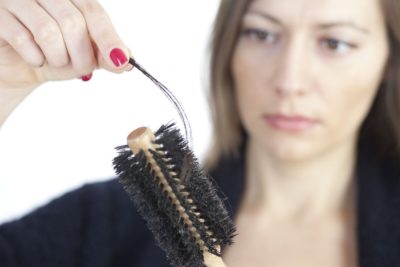
Oily Scalp
People who have oily skin are prone to having a greasy scalp with the possibility of scalp acne and pimples. Oily scalp is when overactive sebaceous glands produce excess oil. This excess oil attracts dirt and germs, which causes the scalp to itch.
Oily scalp is hereditary due to the hormone dihydrotestosterone (DHT), which can be reduced, but not eliminated.
Poor hygiene is also a contributing factor. When hair is not adequately shampooed or conditioned, the secreted oils on the scalp start to accumulate. Hair pores become susceptible to clogging, which prevents hair follicles from growing.
Environmental factors like hot weather, humidity and pollution can contribute to an oily scalp as well. For Singapore’s climate, you should wash your hair daily.
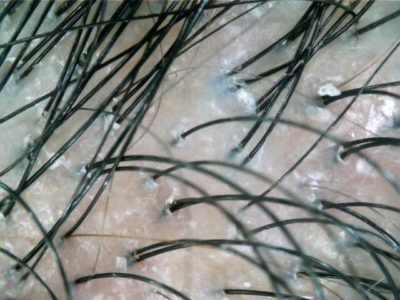
Sensitive Scalp
Like the skin on our face and body, our scalp can become sensitive too. It feels tight, dry, itchy and even painful, at times causing Dandruff to appear.
Change in climate or pollution and even stress generate free radicals. Free radicals modify the scalp’s structure and create changes in the hair bulb, developing this acute sensitivity.
Unsuitable hair products and harsh styling to the hair can cause the scalp to become sensitive as well. Some examples include hair perming and rebonding.
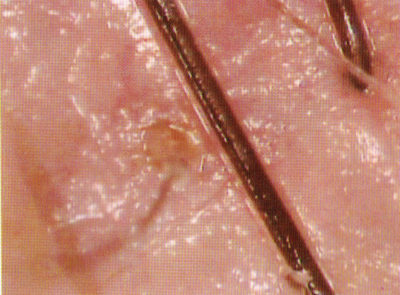
Dandruff
Skin cells are formed continuously on the scalp, which leads to the shedding of dead skin cells. This natural process happens every 20 to 28 days. Dandruff occurs when dead skin cells shed at a faster rate at every 7 to 10 days. Oil from the scalp causes the dead skin cells to clump together, and they appear as white flakes. Scalp redness and irritation are commonly associated with dandruff too.
Factors that cause dandruff include environmental stress, humid weather, pollution, sensitive scalp, incorrect use of hair care products, and skin conditions or diseases like eczema, Malassezia etc.
Dandruff is treatable.
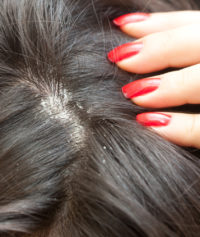
Aging Skin
As the name suggests, when we age, our scalps age as well and become thinner.
The lack of care leads to scalp sagging, loss of elasticity, grey hairs, hair thinning and balding. Our scalp is the fastest ageing skin. It ages 12x faster than body skin and 6x faster than the facial skin. The average speed of hair growth is at 1.25cm per month. However, on an ageing scalp, it slows down to by about 80%, growing at 0.25cm per month.
The underlying causes include a reduction in collagen level, fewer nutrient supplies, weak blood circulation, kidney or liver problem.
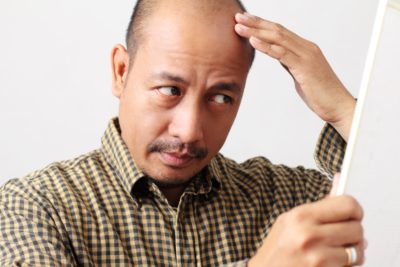
Greying Hair
Greying hair is one of the most apparent signs of ageing when the hair follicles produce fewer pigments called melanin. It often begins at the age of 30 and starts at the temples as it slowly extends to the top of the scalp.
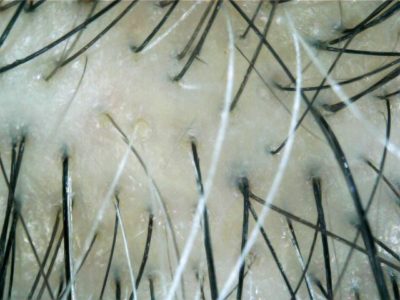
Other
Alopecia Totalis, Alopecia Universalis, Trichotillomania, Traction Alopecia, Folliculitis, Systematic Lupus Erythematosus etc.
FAQs
Why do we need to look after the scalp?
Many of us emphasise hair care and skincare, neglecting that scalp is a part of our skin. Scalp care is as vital as it deals with the root problem directly, where the hair is interlinked.
What are some ways to care for your scalp?
Regular maintenance treatments cleanse your scalp thoroughly. By attaining a healthy and deeply cleansed scalp, you can have healthy and beautiful hair.
What are the symptoms of an unhealthy scalp?
It varies on a case-by-case basis. Usually, we observed hair problems such as itchiness, dry hair, brittle hair, grey hair, acne-prone scalp, split ends, dandruff, greasy and flaky scalp.
If you have any hair & scalp problems and they are causing you distress, consult TrichoKare now or ask our Trichologists here!
“Your scalp is like the soil of a garden – you’re never going to grow beautiful flowers in unhealthy soil – just like you’re unlikely to have a full and healthy looking head of hair natured by an unhealthy scalp.”
Quoted by our Trichologist at TK TrichoKare
Member of International Association of Trichologists
Specialize in Hair and Scalp Problem
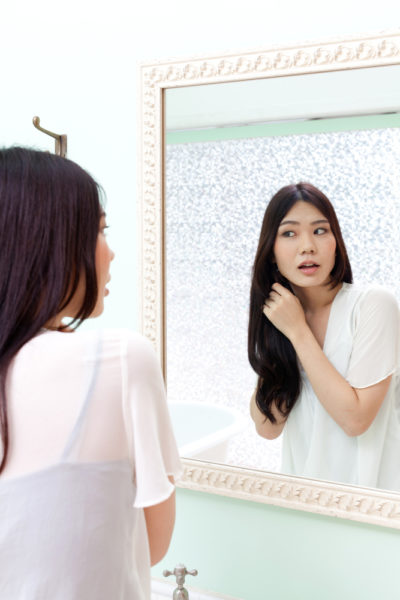
Award-Winning Scalp Purifying Therapy
FREE ScalpBoost Ampoule(used during treatment), Hair Bath (Shampoo)(50ml), CompleteKare Mask (Conditioner)(50ml)
$59.90 Nett
(U.P. $755)
Book An Appointment
We'd love to hear from you! Send us a message and We will get back to you as soon as possible!
*Individual results may vary. There is no scientific proof that any product (except certain registered medicinal products) or service can retard hair loss or promote hair growth.
“Personal data obtained from the above information may be used for the purpose of making you aware of our services or promotions which TK TrichoKare thinks you may be interested in. Such information may also be disclosed to carefully selected third parties for direct marketing. If you wish to withdraw your consent given here in, you can do so at any time by sending an email to us or call us.”

